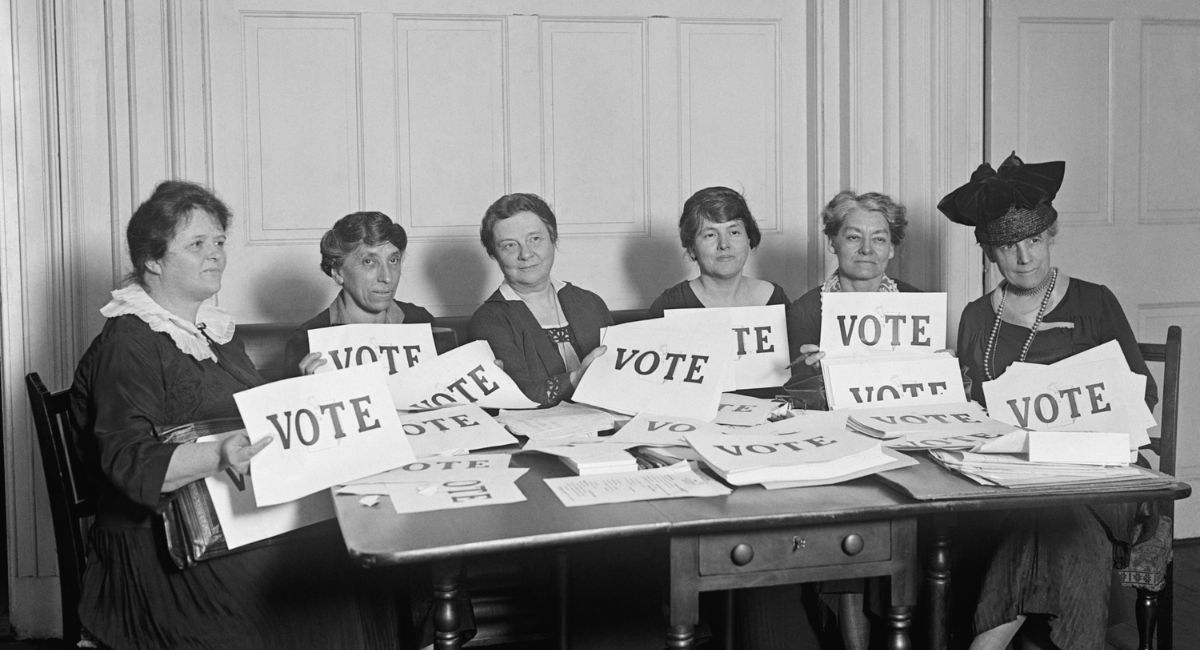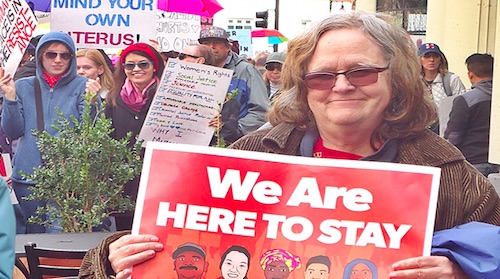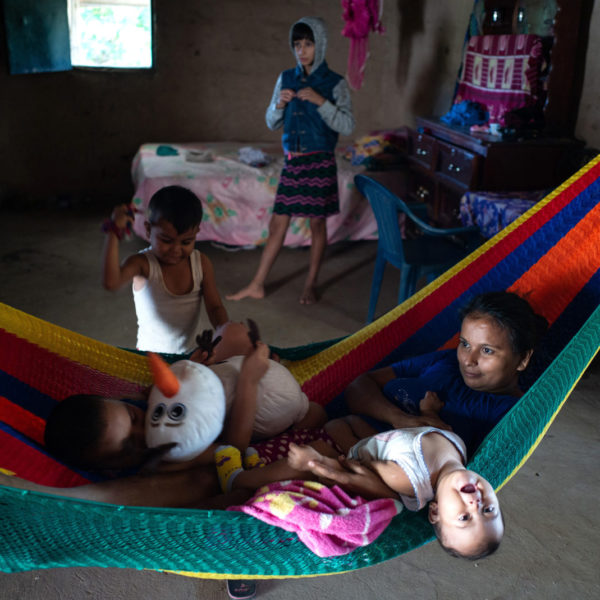A recent Ethnic Media Services briefing focused on the critical issues guiding women to the polls in a pivotal year, addressing concerns that have persisted since the inception of the feminist movement. Key speakers included Maya Kornberg from the Brennan Center for Justice, Ai-Jen Poo from the National Domestic Workers Alliance, Shikha Hamilton from Brady, and Monica Simpson from Sister Song. Each expert provided insights into the challenges women face in seeking and maintaining elected positions, workers’ rights, wage parity, gun control, and reproductive rights.
Maya Kornberg presented findings from a recent Brennan Center research report, shedding light on the pervasive issue of violence against elected officials, particularly impacting women and marginalized communities. The report, derived from a national survey and interviews with state legislators, revealed alarming statistics: over 40% of state legislators and nearly 20% of local officeholders had experienced threats or attacks in recent years. When factoring in harassment and insults, the figures soared, affecting almost 90% of state legislators and over half of local officeholders.
Furthermore, the research highlighted the disproportionate burden on women and people of color, who often faced abusive language targeting their gender, race, or other identities. Women in state legislatures were nearly four times as likely as men to experience sexual abuse. The fear of abuse not only deterred elected officials from addressing contentious issues like gun regulation and reproductive rights but also hindered their engagement with constituents, posing a threat to democracy itself.
The presentation underscored the intersectional nature of violence, with women of color bearing a greater burden and often resorting to additional safety precautions. Additionally, the study extended beyond elected officials to encompass election administrators, where one in three reported experiencing harassment or abuse, further endangering the democratic process.
In response to these alarming trends, Kornberg outlined several recommendations to address the issue, including providing security funding for campaigns, offering training and mental health services for officeholders, regulating firearm possession in public interactions, and encouraging public leaders to speak out against abuse.
Overall, she raised awareness about the persistent challenges women face in the political sphere and the urgent need for concerted action to ensure their safety, representation, and participation in the democratic process.
Monica Simpson of Sister Song offered profound insights into the critical issue of reproductive rights, particularly in the context of the ongoing struggle for justice and equity. Simpson began by acknowledging the 30th anniversary of the reproductive justice movement, emphasizing its origins in the advocacy of Black women seeking to address the intersecting challenges faced by marginalized communities.
Highlighting the recent Dobs decision, which undermined Roe v. Wade and paved the way for stringent abortion bans across the country, Simpson underscored the disproportionate impact on communities of color. She outlined the dire consequences of these bans, forcing many individuals to travel out of state to access essential reproductive healthcare. Moreover, Simpson stressed the overarching threat of criminalization, especially targeting people of color seeking abortion care.
In her address, Simpson delved into the systemic barriers faced by Black women, including limited access to contraception and the stark racial disparities in maternal health outcomes. She passionately articulated the need to confront structural racism entrenched within the healthcare system and society at large, which perpetuates inequities in reproductive healthcare and beyond.
Simpson also touched upon the broader challenges confronting marginalized communities, such as police brutality, violence, and voter suppression. She emphasized the interconnectedness of these struggles, rooted in the fight against white supremacy and the pursuit of bodily autonomy and human rights.
Drawing attention to recent attacks on reproductive freedoms, including a ruling on IVF in Alabama, Simpson emphasized the urgency of the ongoing battle for reproductive justice. She called for collective action to challenge stigma, reduce barriers to access, and ensure that individuals can make informed decisions about their bodies and futures without fear or shame.
Simpson concluded by affirming the importance of voting with values and recognizing reproductive justice as a central issue in the broader fight for social justice. She underscored the significance of intersectionality in understanding the complexities of reproductive rights and urged continued advocacy to create a more just and equitable world for all.
Ai-Jen Poo, President of the National Domestic Workers Alliance, brought attention to the urgent need for workers’ rights, particularly focusing on low-wage women and wage parity. Poo highlighted the staggering realities facing American families, with 10,000 children born and 10,000 people turning 65 every day. Despite this growing need for care, the United States lacks comprehensive support systems, leaving millions of family caregivers and care workers without adequate resources.
Poo emphasized the reliance on women, especially women of color, within the care economy, where they are disproportionately underpaid and lack essential benefits such as health insurance and paid time off. The median annual income for a home care worker in the US stands at a mere $23,000, making it nearly impossible to support oneself or a family.
The discussion extended to the broader implications of these issues, highlighting their intersectionality across race, class, and geography. Poo emphasized that care issues are not solely women’s issues but affect individuals across all demographics. Women, particularly those in the sandwich generation, who are caring for both children and aging parents, bear a significant burden.
In response to these challenges, Poo outlined the Care Can’t Wait coalition’s agenda, which advocates for quality and affordable childcare, a federal program for paid family and medical leave, expanded access to care for older adults and people with disabilities and ensuring fair wages for care workers.
Furthermore, Poo emphasized the importance of these issues in engaging and mobilizing women across various communities. By addressing the systemic barriers within the care economy and advocating for policies that support caregivers and workers, the coalition aims to create a more equitable society where all individuals can thrive.
Poo concluded by highlighting the long-term significance of investing in the care economy, stressing that these jobs cannot be automated or outsourced and are vital for the future workforce and economy. By prioritizing workers’ rights and care issues, the coalition aims to foster a more inclusive and participatory democracy where the needs of all individuals are met.
Shikha Hamilton, Vice President of Organizing at Brady, shed light on the bipartisan nature of the gun control issue and its intersection with women’s voices in the political landscape. Hamilton emphasized Brady’s commitment to ending gun violence through legislative reforms, industry changes, and public awareness campaigns.
Hamilton’s journey into the gun violence prevention movement began as a concerned mother from Detroit, motivated by the desire to create a safer future for her children and others affected by gun violence. She recounted the historic 1 Million Mom March, where women, particularly mothers, played a pivotal role in advocating for stronger gun laws and mobilizing voters to prioritize gun safety.
The impact of women’s activism was evident as gun safety legislation gained momentum in state houses and at the federal level following the 1 Million Mom March. Hamilton highlighted the significant role women have continued to play in advancing the gun violence prevention agenda, with many former marchers now serving in Congress and leading advocacy efforts across the country.
Moreover, Hamilton emphasized that gun violence is an issue that transcends partisan divides, as mothers from all walks of life are united in their horror at the devastating impact of gun violence on children and communities. She stressed that women, particularly mothers, remain at the forefront of the movement to end gun violence, with Brady itself being led by women.
As the Biden administration prioritizes gun violence prevention, Hamilton underscored the importance of women’s voices in shaping policy and driving change. She highlighted the creation of the White House Office of Gun Violence Prevention, led by Vice President Kamala Harris, as a significant step forward in addressing this pressing issue.
In closing, Hamilton reiterated the determination of women from diverse backgrounds to continue fighting for a safer future, free from the scourge of gun violence. She affirmed that women will lead the way in advocating for meaningful reforms until America is truly freed from the grip of gun violence.
#GunControl #WomenLeadership #Activism #Mothers #EndGunViolence #BipartisanAction #WomensHistoryMonth #SocialJustice #PolicyChange #CommunitySafety










